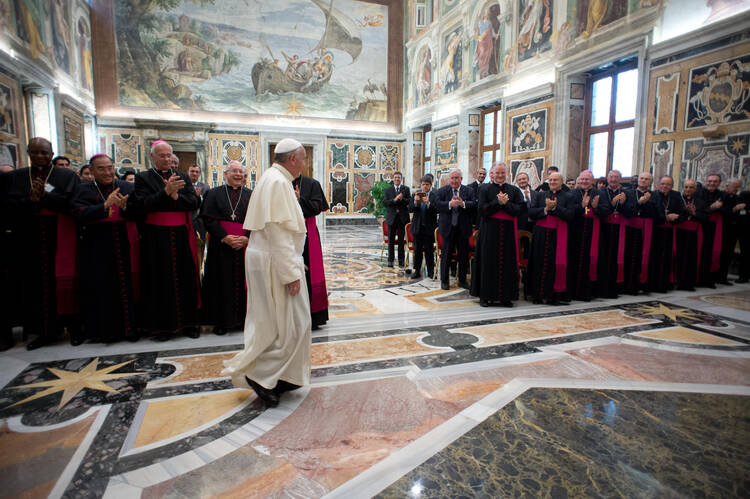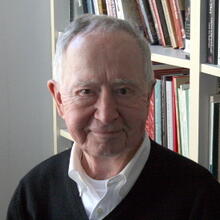No pope has ever before given an interview with the press. The event, as seen in the long history of the successors of Peter, is absolutely unprecedented. It is just as unprecedented for a pope to reveal so much about himself as a human being, to talk about his weaknesses and to name his mistakes and express regret for them. I could go on. But we should not wonder that the interview has caused such a sensation.
We should not, however, wonder so much about the basic message of the interview. In it Pope Francis simply put into words the message he has been preaching by his actions and style of behavior since the moment he was elected. What is that message? I think of the mandate Pope John XXIII gave to Vatican II the day the council opened. He told the bishops that the council should show the church to be “the loving mother of all, benign, patient, full of mercy and goodness.” The council took that mandate seriously. It did its best to make it operative in its decrees, as when it described the church as the people of God, as when it extended a hand in friendship to other churches and to other religions, as when it addressed its final document to all persons of good will.
Francis is the first pope from the Americas, the first Jesuit pope, the first to take the name Francis. He is also the first pope in 50 years not to have participated in the council. And that is good news! Popes Paul VI, John Paul II and Benedict XVI all participated in the council and during their pontificates they had to deal with its battles. Francis is above that. Not having participated, he was freer to get the council’s basic message, and he has been putting it into action by word and deed ever since his election.
The council was more concerned with how the church is than with what it is, even if those two things cannot really be separated. The council was concerned with how the church behaves, with how it bears itself toward its members and toward those who are not members. Does it behave first and foremost as the loving mother of all or does it behave as the world’s moral policeman? Francis has clearly chosen the former.
But is he really going to change things? Well, don’t you think he has already changed things—big time? He has changed priorities, and a change in priorities is a change big time for any organization. By taking the name Francis, his very first decision as pope, he made a first proclamation of his priorities for the church. As he explained it, he chose the name for three reasons: because of Francis’ love of the poor, his care for nature and his love of peace. Peace, care for the environment, and care for the poor of this world. In choosing the name Francis, he wrote his first encyclical, and he did so in a way more powerful than any written document. He did the same when he washed the feet of the Muslim woman.
There is an old saying you may be familiar with: actions speak louder than words. There is another: what you are thunders so loud I cannot hear what you are saying. By his actions Francis has been revealing himself, and those actions have for six months been thundering through the church and through the world beyond it.







